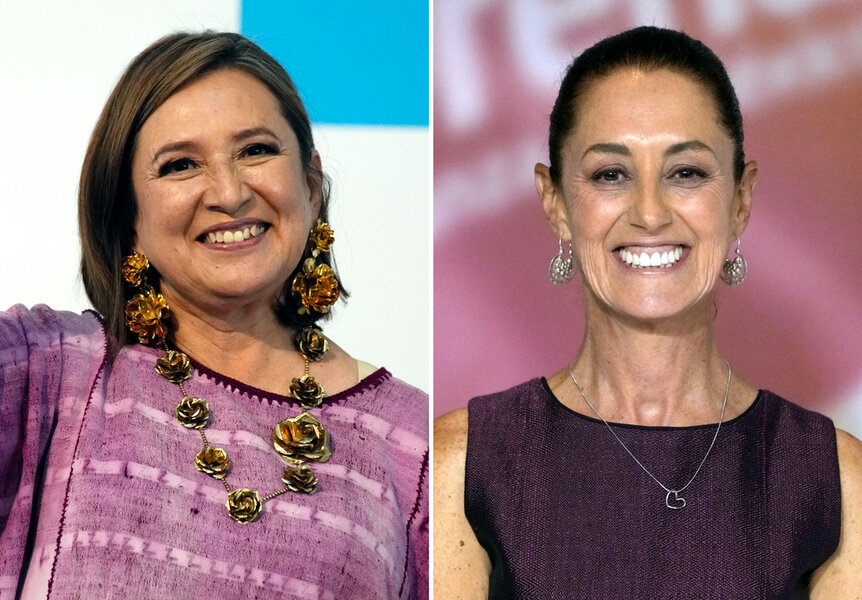A Mexican election offers freedom
Loading...
Few countries have achieved greater political gains for women in recent decades than Mexico. Half of the Cabinet and national legislature is female. So are the country’s chief justice and a third of all state governors. In a landmark ruling last fall, the Supreme Court decriminalized abortion.
Now the country is poised to elect its first female president. The two leading candidates for the June ballot come from contrasting circumstances. Claudia Sheinbaum was raised in affluence by immigrant parents. Xóchitl Gálvez, who is ethnically Indigenous, grew up poor. Their personal differences, however, resonate less than their professional qualifications.
Both women are trained scientists with successful political careers. They eschew personal attacks and emphasize equality and compassion. Between them, they have garnered support from 90% of voters. In a country where 70% of women have experienced some form of violence, many Mexicans glimpse a future beyond fear and limitation.
This is “a historic moment: cheering on our future president, who is, moreover, a scientist,” Brenda Suarez, a shopkeeper, told Le Monde during Ms. Sheinbaum’s election kickoff in Mexico City last Friday. “My two daughters already see Claudia as a role model.”
Mexico’s contest between two leading female presidential candidates reflects a continuing shift in attitudes – fueled partly by quotas – about gender equality in Latin America. Twelves countries in the region have been led by women. While gender gaps persist, a 2021 Gallup poll found that strong majorities – ranging from 75% to 92% – in every country of the region expected to see a female head of state within a decade. Across the region, a median average of 46% expressed a preference for female managers in their jobs.
These attitudes reflect widening recognition and respect for the qualities and qualifications that women bring to leadership. As Jennifer Piscopo, a professor of gender and politics at the University of London, has observed, in Latin America, voters tend to associate women with political renewal and trust. “As the group traditionally excluded from political power, women often signal a fresh start and then repudiation of corrupt elites, making them more attractive candidates.”
On the campaign trail, Ms. Sheinbaum, the ruling party candidate, and Ms. Gálvez outline economic and security proposals that differ by degrees. But their stump messages align on seeking justice for all Mexicans, protection for women, and honest governance over corruption.
“In a country where women – especially minority women – struggle to survive, Gálvez and Sheinbaum studied science, shaped policy, and crafted resumes worthy of presidential bids,” Professor Piscopo wrote last week in Ms. Magazine. “The symbolism is huge,” she told the Financial Times.





